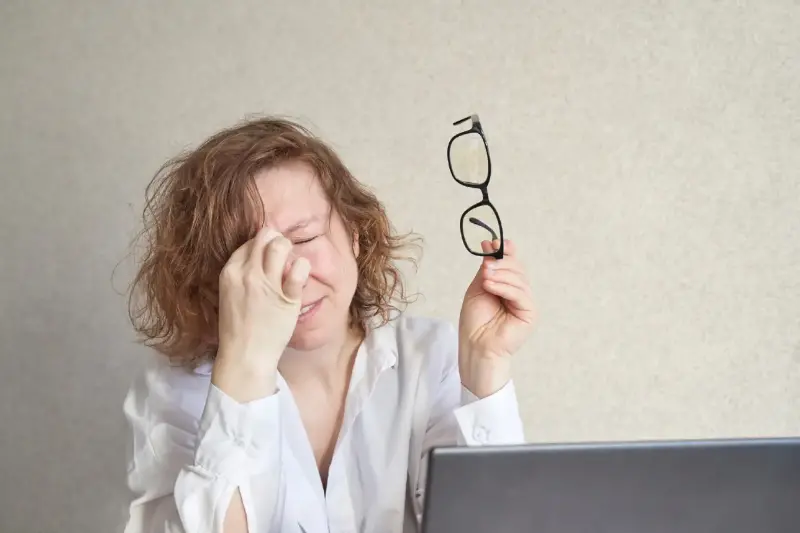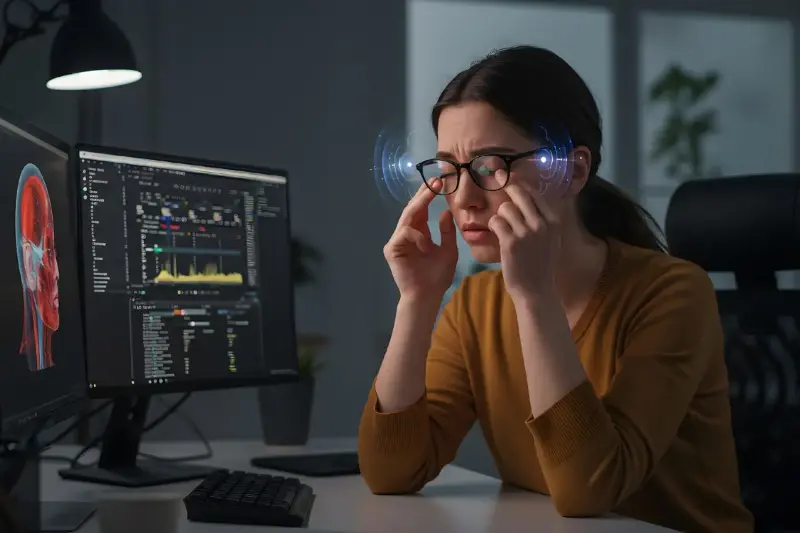Eye Strain: How to Protect Your Vision in the Digital Screen Era

In a world illuminated by screens, our eyes are busier than ever. With laptops for work, smartphones for scrolling, tablets for reading, and televisions for entertainment, most of us spend an astonishing portion of each day staring into glowing rectangles. But at what cost to our vision? Let’s unravel the truths and tactics behind protecting your eyes in this digital age.
The Age of Digital Dependency
Statistics paint a striking picture: the average adult spends over 8 hours per day in front of digital screens. Children and teenagers, immersed in online learning and social media, often log similar hours. These habits have quietly led to an epidemic known as Digital Eye Strain (DES), sometimes called “computer vision syndrome.”
Common symptoms include:
- Dry or irritated eyes
- Blurred or double vision
- Headaches and neck pain
- Difficulty focusing
While these symptoms seem minor, studies warn that chronic eye strain can disrupt quality of life and gradually diminish overall eye health.
The Science of Eye Strain
What exactly happens to your eyes when you engage with a digital device? Unlike reading a printed page, focusing on a screen demands constant adjustment as the brightness, glare, and tiny fonts tax your eye muscles. Blue light emissions from digital displays penetrate deep into the eye, potentially impacting sleep cycles and retinal health.
A particularly concerning trend is the reduction of blinking rates. Humans naturally blink about 15-20 times per minute, but while using screens, that rate can plummet by half. Blinking moistens the eyes; less blinking means more dryness and discomfort.
Easy Habits to Ease the Strain
You don’t have to swear off technology to save your sight. By making a few intentional tweaks, you can guard your vision without putting your devices on lockdown.
Try these simple strategies today:
- The 20-20-20 Rule: Every 20 minutes, look at an object at least 20 feet away for 20 seconds. This mini-break helps relax your eye muscles and shift your focus.
- Optimise Your Workspace: Keep screens an arm’s length away and position them slightly below eye level. Adjust lighting to reduce glare, perhaps by using a desk lamp instead of overhead lights.
- Increase Font Size: Don’t make your eyes struggle—embrace larger text on websites and apps.
- Blink More: Remind yourself to blink regularly, especially during intense bursts of screen time.
- Hydrate: Drink plenty of water throughout the day and consider using lubricating eye drops if dryness persists.

Tech-Smart Tools and Practices
Emerging technologies are stepping up to help. Many newer devices feature blue light filters or “night modes” that adjust colours and brightness based on the time of day. Specialised computer glasses can further reduce blue light exposure and eye strain.
Quick checklist to fine-tune your setup:
- Switch on blue light filtering modes, especially after sunset.
- Invest in anti-glare screen protectors.
- Keep your screens clean—dust and smudges increase strain.
- Consider regular eye check-ups—identifying vision changes early can make a world of difference.
Digital Detox: The Vision Retreat
Have you ever considered a digital detox? Setting aside even one device-free hour a day can reset your eyes and refresh your mind. Outdoor activities like walking, gardening, or playing sports provide a double benefit—relief from screens and exposure to natural light, which research shows is vital for healthy vision development in children.
Returning to nature helps recalibrate what our eyes were designed for: scanning horizons, deciphering shadows, and revelling in vibrant colours beyond the blue glow of a display.
In an age of digital wonder, our eyes still crave the ordinary miracle of rest. When was the last time you looked away from your screen and truly noticed the world around you? Perhaps today is the perfect day to rediscover the simple, satisfying joy of giving your vision a break.
